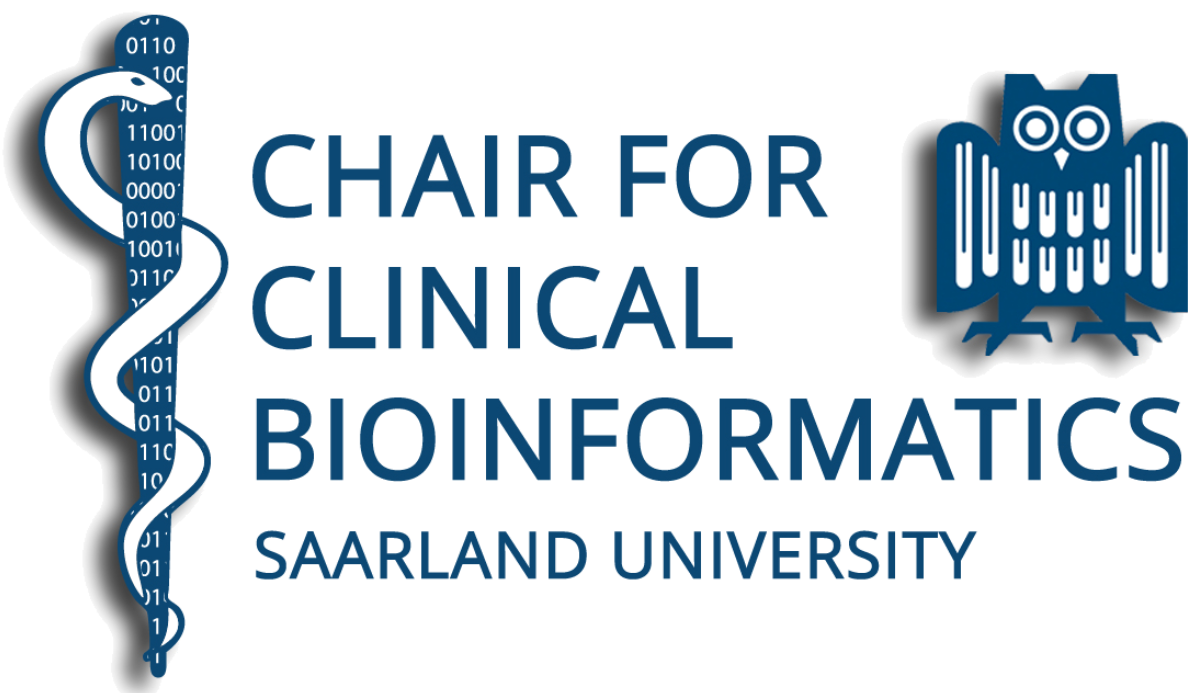This is a block Pro-/Seminar for Bioinformatics students.
Overview: RNA-seq (or RNA sequencing) is an approach that attempts to capture the set of transcripts expressed by a tissue or group of cells at a given moment and their respective sequences without any previous knowledge. Compared to other technologies to measure the transcriptome, such as microarrays or qPCR, RNA-seq technologies offer the possibility of reanalysis when new methods become available. Besides mere transcript abundance levels, RNA-seq also allows to gain deeper understanding from an experiment such as the presence of isoforms, genomic variants or other aspects that can be revealed by different platforms, technologies and protocol modifications.
The current seminar is designed to provide students with a varied overview of Bioinformatics methods for the analysis of RNA-seq data as well as some applications that highlight its usefulness in biomedical research.
Depending on the current pandemic situation, we will try to have the meetings in presence. If it is not possible, we will do remote meetings via Microsoft Teams conferences instead of personal meetings.
Tutor: Dr. Ernesto Aparicio-Puerta, M.Sc. Annika Engel
Key dates:
| Registration * | From April 25 to May 15, 2022 HERE |
| Kick-off meeting [mandatory] | May 31, 2022 Starting at 2 pm. Slides |
| Deadline to register in HISPOS OR de-register from seminar * | June 21, 2022 |
| Deadline for feedback ** [optional] | September 13, 2022 |
| Presentations | September 27, 2022 |
| Summary submission deadline | October 4, 2022 |
* If you want to deregister from the seminar, please send the tutor an email irrespectively whether you (de)registered in HISPOS or not.
** If you would like to get feedback about your slides, e.g. to improve your presentation before the talk, send your slides to the tutor before the feedback deadline. We strongly encourage you to take this opportunity. When asking for feedback the more complete the submitted presentation the more helpful our feedback can be. Thus, try to avoid submitting half-finished slides. Feedback will be provided at least once but at most twice per participant. Also, before sending in the slides, check out our support materials (presentation guidelines, presentation guidelines checklist). You must hand-in a (digital) copy of the completed guidelines checklist at latest when performing the presentation.
Please note: Your slides will make up a substantial part of the final grade. Reading and paying attention to the provided presentation guidelines will help you to get an impression of which aspects are relevant for the evaluation. Disregarding many of the points listed in the guidelines may negatively affect your grade.
Place and Time for Presentations:
- TBA
Requirements for participation (Bioinformatics):
- Proseminar: at least in 3rd semester, Bioinformatics I
- Seminar: no pre-requisites.
Good language skills are presumed as all talks will be held in english language.
Certificate requirements:
- Successful presentation:
- Talk: 30 minutes for a Pro-seminar and 40 minutes for a Seminar
- Discussion: 5 minutes during which you should be able to answer questions from the tutor(s)/audience
- Attendance to all presentations is mandatory
- Submitting a summary (may have an impact on the final grade):
- Short description of the presented topic(s)
- Ca. 2 pages of text, excluding title (page), references, figures, tables etc..
- No figures, tables or formulas required
- Main structure: title page, main text (with or without subsections), references
- It is recommended to write the report using LaTeX in order to train scientific writing
Final grade:
- Primarily based on the given presentation & follow-up discussion
- Might be influenced by the quality of the submitted summary report
Topics
All manuscript files are either open-access or available via the university network using a secure VPN connection.
Recommended readings
Students who either have a shallow understanding on the topic and / or want to prepare for the course should consider reading the following papers:
- RNA-Seq: a revolutionary tool for transcriptomics
- Count-based differential expression analysis of RNA sequencing data using R and Bioconductor
- Transcriptome sequencing to detect gene fusions in cancer
- Ultrafast and memory-efficient alignment of short DNA sequences to the human genome
- TopHat2: accurate alignment of transcriptomes in the presence of insertions, deletions and gene fusions
- STAR: ultrafast universal RNA-seq aligne
- featureCounts: an efficient general purpose program for assigning sequence reads to genomic features
